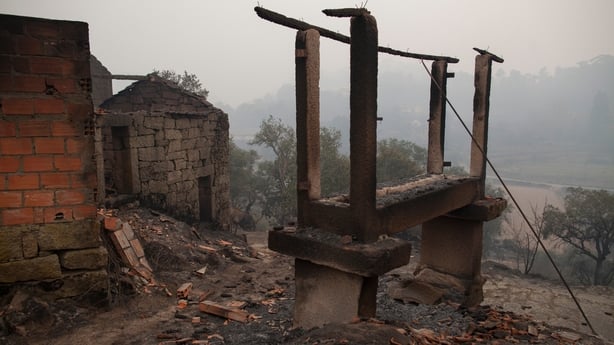Lethal wildfires in Portugal have begun to die down, after the first real rain since June.
However, the government has faced growing criticism for its slow response to the second such disaster in four months.
Hundreds of fires broke out across northern and central Portugal on Sunday after the driest summer in nearly 90 years, killing at least 41 people and overwhelming fire-fighting and rescue services.
The government, which says the fires were due to an extraordinary spell of unusually dry weather, declared three days of mourning.
But critics asked why the government had not learned the lesson from an even deadlier forest blaze in central Portugal in June in which 64 people died.
A report on the fire in June pointed to failures in response times by emergency services and poor coordination by firefighters, in addition to a breakdown of communications networks used by the civil protection agency.
In a televised address to the nation yesterday, Socialist Prime Minister Antonio Costa said that he would not sack his interior minister, but he promised reforms, adding: "Nothing will stay the same after this year."
The parliamentary head of the centre-right opposition Social Democrats, Hugo Soares, said that Mr Costa's statement was an "insult to the intelligence" of the Portuguese.
"The prime minister missed an opportunity to take political responsibility (for the fires) and he missed an opportunity to say sorry," he said.

This weekend's fires brought the total area burned in Portugal this year to 350,000 hectares, the worst since 2003,making the country by far the worst hit by fires this year in the European Union.
In neighbouring Spain, which also had fires in the past few days, just 88,000 hectares have burnt this year, according to EU data.
The fires at the weekend also destroyed one of the country's oldest pine forests, which was used to make the ships that Portugal sailed on its "Discoveries" of the world in the fifteenth and sixteenth centuries.

